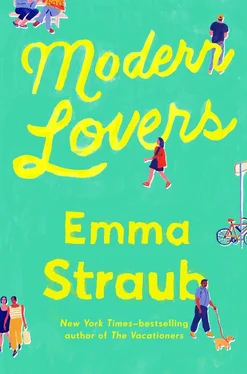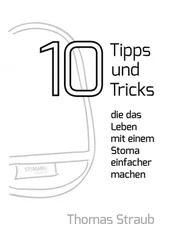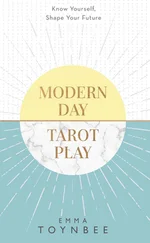“Whew,” Zoe said, appearing at Elizabeth’s side. “I like this one a lot.” She bent forward at the waist and touched her toes. “I could live here, I think.”
“That’s great,” Elizabeth said. “I mean, you can’t live here, unless you want to move before you sell your house, or unless you want to buy this place and keep it empty for six months, but it’s good to know what you’re looking for.”
“Oh,” Zoe said. “Right.”
“Or the timing could work out — you never know how slowly people are going to move. We could hurry up with your house and drag our heels over here, and if you’re not bidding against multiple other offers, it could work.”
They hadn’t talked about a real schedule. Once the balls were in the air, things were going to get messy. The room got a little bit wobbly for a second, while both Elizabeth and Zoe suddenly imagined the fantasy becoming a reality. But “fantasy” was the wrong word — a fantasy was a thatched hut on a faraway beach, a fantasy was a white horse and a castle. The idea of Zoe actually getting divorced — of her being single —was actually horrifying. It was a choice people made all the time, to end a marriage, but it had never happened to them, and they looked at each other for a minute, both grim-faced. If Zoe and Jane could do it, so could she, Elizabeth thought, the notion flickering across her brain quickly and vanishing like a phantom mosquito.
“Can we just sit here for a while?” Zoe asked.
“Sure,” Elizabeth said. They had other appointments, later in the day, but mostly she just had keys to empty apartments, like this one, and spending a few extra minutes wasn’t going to throw off their schedule. This was how decisions got made in her business — sitting in empty rooms, listening to people’s daydreams about furniture and imaginary children.
They sat down on the floor of the living room, or what would become the living room when someone moved in. Elizabeth sat with her legs stretched out in front of her, crossed at the ankles, and Zoe leaned against the opposite wall, with her knees bent. The wood floors were gleaming, with defiant dust bunnies forming in the corners of the room. It was nearly impossible to keep an empty space completely clean.
“I’ve been walking through the house, making imaginary lists of what’s mine and what’s hers,” Zoe said. “It’s surprisingly easy.”
“Oh, yeah? Like what?”
Zoe ticked the items off on her fingers. “The nice rugs are mine, the kitchen stuff is hers. The trunk we got at the flea market is mine, the records are mine, mostly. The ugly fucking lamp that I’ve always hated is hers.”
“Plus Bingo.”
“Bingo is nonnegotiable.” Zoe rolled her head back so that Elizabeth was looking at her throat. “Ruby, on the other hand…”
“What’s going on with Rube?”
“It’s all so typical.” Zoe shifted her head forward again and smacked her lips. “Teenage girls are teenage girls. Do you remember what giant assholes we were? Or, you weren’t, but I was. Ruby is kind of a giant asshole right now. Not always. When she has a stomachache or the flu and she feels awful, then she’ll still crawl into bed with me and cuddle up and let me pet her, but otherwise? Forget it! She treats me like a warden. Not even the nice warden who gives you extra soap, but the mean one, with the nightstick. It’s horrible.”
“What about Jane?” Elizabeth had often observed Ruby acting like an asshole over the course of her life, but it was an awareness she tried to suppress. Not liking your friends’ kids was worse than not liking your friends’ spouses. And it wasn’t that Elizabeth didn’t like Ruby — she was often funny, and dark in a way that Elizabeth found amusing — but there was a touch of the asshole there, it was true. You couldn’t ever say that, though, no matter how true it was. When the kids were little, she and Zoe had been friends with another mom in the neighborhood, and this lady’s kid was so horrible that they both mentioned it to her, that he seemed like a miniature serial killer in training, and she stopped speaking to them. Pretty soon she moved out of the neighborhood, and Elizabeth guessed it was to move closer to whatever prison facility her son was bound to wind up in. People just didn’t want to hear it.
“Jane is hopeless. She doesn’t even try. Which, of course, makes it so much easier. Jane and Ruby can go eat a thousand chicken wings together and not say more than three words, and they’re fine, like a couple of frat boys. Ruby never says she hates Jane. She only hates me.”
“Ruby does not hate you, Zo,” Elizabeth said.
Zoe crossed her fingers. “Remember when all you had to worry about was how much breast milk they were eating, and what their poop looked like?” She laughed. “Parenthood is the only job that gets progressively harder every single year, and you never, ever, ever get a raise.”
“I’ll give you a raise,” Elizabeth said. She stood up and offered Zoe a hand. “Harry said he’d been hanging out with her in their SAT class, did you know that?”
“I am more likely to learn about my daughter from the mailman than I am to get any information directly,” Zoe said. “But that’s nice. Chivalry, I guess?”
“I suppose,” Elizabeth said. She started to describe the look on Harry’s face when he’d mentioned it — though he tried so hard to be casual, his cheeks were tight with disbelief and happiness — but she stopped herself. Ruby, like Zoe, had a long life of adoration ahead of her, and Elizabeth didn’t feel she needed to fuel the fire. No matter how old you got, there were certain things that clung from childhood — a cool-girl meanness or a nerdy girl’s pining for someone who wouldn’t want her back. Elizabeth saw so much of herself in Harry, even in his silent crushes, the secrets he thought he kept. It was hard to be a boy, just like it was hard to be a girl. “Let’s go,” Elizabeth said, and she opened the front door, happy to have the noise on the street come into the apartment and fill it with something other than her own thoughts.
Ruby didn’t love the idea of working at the restaurant, but her mothers didn’t really give her a choice. It was either work as a hostess at Hyacinth or get a job somewhere else, and anywhere else would require (at the very least) a résumé and an interview, not to mention the clothes she would have to buy at Banana Republic or wherever else lame people with boring jobs bought their gray pantsuits and white button-down shirts. Chloe was in France all summer, and Paloma was at her parents’ country house for the month of June, until she left for a month in Sardinia at her parents’ “cottage.” Ruby didn’t miss them. Sarah Dinnerstein was around all summer, and Ruby wished she weren’t. As soon as graduation was over, Ruby knew that the whole thing had been a setup — not the ceremony itself, but the years preceding it. She wanted to go into a witness-protection program somewhere in the middle of Wyoming, learn to break horses, maybe marry a cowboy, spit in a can for fun. Anything to get out of Brooklyn and her own life. But here she was.
Allie, the current hostess at Hyacinth, who had also been Ruby’s babysitter, seemed to have left abruptly, but that happened a lot in the service industry. Her mom said they needed someone fast, and nothing was faster than Ruby. She agreed to work the lunch shift (which was always slow during the week) and then the brunch shift plus dinner (after her class on Saturdays, and from ten a.m. to three p.m. on Sundays), which was always like being an infantry soldier on a very crowded battlefield. Ruby herself found brunch to be an infantilizing meal, but as her mothers loved to remind her, those long afternoons of eggs and mimosas paid for her tuition. The least she could do was show people to their tables and tell them to enjoy themselves. She didn’t have to like it.
Читать дальше












